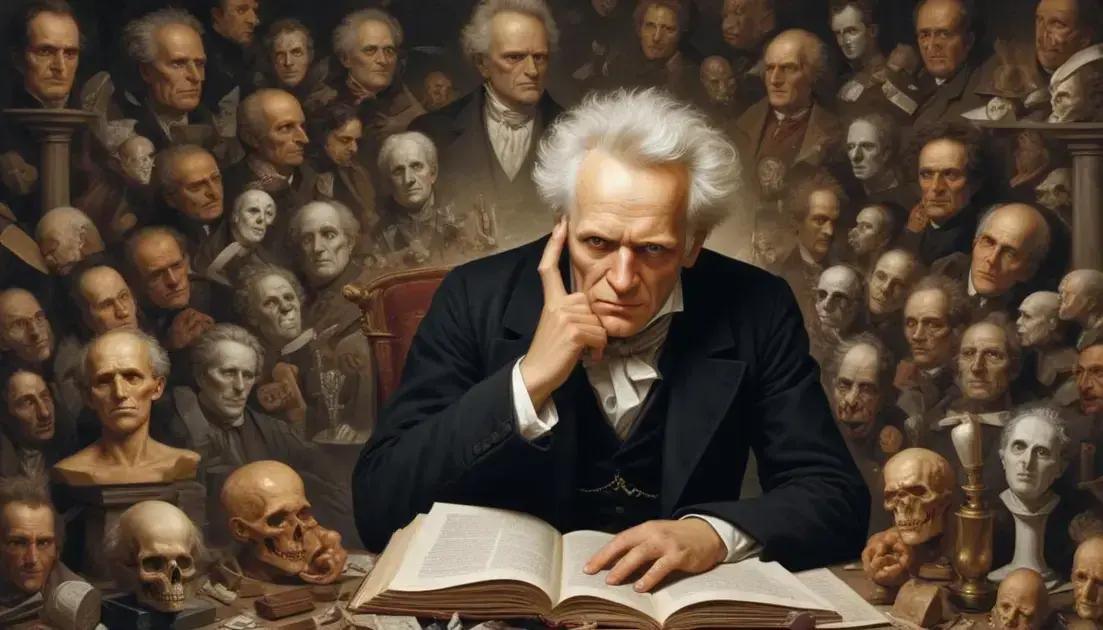
Spinoza: God, Nature and Freedom
Spinoza’s philosophy significantly influences modern ethics and science by emphasizing the interconnectedness of all things. He proposed that nature itself embodies divinity, urging us to recognize our moral responsibility toward the environment. By advocating for reason over emotion in ethical decision-making, Spinoza underscores the importance of knowledge in leading a fulfilling life. His ideas inspire critical thinking and promote scientific inquiry, reminding us that understanding the natural laws not only enhances our ethical choices but also deepens our connection to the universe.
Have you ever pondered the relationship between Spinoza and our understanding of God and nature? Dive into his rational philosophy that challenges conventional views.
Exploration of Spinoza’s Philosophy
Spinoza’s philosophy dives deep into the nature of reality and our place in it. He believed that everything in the universe, including us, is part of a single substance that he called “God” or “Nature.” This idea can feel pretty big, but let’s break it down.
The Nature of God
For Spinoza, God isn’t just a distant figure. He saw God as being present in everything around us. This view shifts how we think about religion and spirituality. Instead of looking up to an external deity, Spinoza encourages us to find divinity in nature and ourselves.
Understanding Freedom
Another major idea in Spinoza’s work is freedom. He believed that true freedom comes from understanding how things work in the world. When we know the natural laws, we can make better choices that align with those laws. It’s about living in harmony with the universe.
Ethics and Human Nature
Spinoza’s thoughts on ethics focus on happiness and virtue. He argued that to live a good life, we must seek knowledge and understand our emotions. This way, we can make choices that lead to a fulfilling life. He linked joy and reason, showing that emotional clarity leads to ethical living.
Reading Spinoza can open your mind to different ways of looking at life. His ideas encourage us to appreciate nature, seek knowledge, and understand ourselves better.
The Concept of God in Spinoza’s Work
In Spinoza’s work, the concept of God is very unique. He believed that God is not a separate being. Instead, God is the same as Nature. This means everything we see around us is part of God.
Spinoza argued that God is present in the world. He viewed God as the universe’s laws and forces. By understanding nature, we can understand God better. Many people find this idea refreshing. It shifts how we see our connection to the divine.
God and Substance
For Spinoza, everything that exists is part of one substance. This substance is infinite and unchangeable. It includes everything from the stars in the sky to the trees in our parks. This idea shows how interconnected everything really is.
Rejection of Traditional Religion
Spinoza rejected the traditional view of God found in many major religions. He didn’t see God as a person who punishes or rewards. Instead, he emphasized an impersonal God, linked to the natural world. This viewpoint can be liberating for many who feel burdened by strict religious rules.
His ideas invite us to explore God through the beauty of nature. By seeing God in everything, we can develop a deeper appreciation for life.
Nature as Divinity
Spinoza believed that nature itself is divine. He argued that everything we see around us is part of God. This idea encourages us to appreciate the world in a new way. By seeing divinity in nature, we begin to recognize the beauty in everyday things.
Nature isn’t just a backdrop in Spinoza’s philosophy. It plays a key role. Spinoza saw the universe as a living whole. He argued that all things are interconnected, and that includes humans. This connection reminds us we are part of something bigger.
The Unity of Nature
Spinoza emphasized the unity of nature and God. This means that all aspects of nature reflect divine qualities. Rivers, trees, and animals—everything is sacred. When we look at nature, we can see God’s presence everywhere.
Understanding Our Place
By understanding nature as divine, we learn more about ourselves. Spinoza encourages us to explore how our actions affect the world. This approach teaches us to live harmoniously with nature and respect all living things.
Viewing nature as divinity can change how we act. It fosters a sense of responsibility and care for the environment. When we honor nature, we honor the divine.
Freedom in Spinoza’s Thought
In Spinoza’s thought, freedom is about understanding how the world works. He believed that true freedom comes from knowledge. When we know the natural laws, we can make better choices.
Spinoza pointed out that many people confuse freedom with doing whatever they want. Real freedom, for him, is about acting wisely. It means living in harmony with the universe.
Understanding Natural Laws
Spinoza emphasized the importance of understanding nature. By learning how things function, we can align our lives with those rules. This leads to a more fulfilling and meaningful life.
Emotions and Freedom
Spinoza also explored how our emotions affect our freedom. He said that strong emotions can control us. To be free, we need to manage our feelings and understand them clearly.
When we comprehend our passions, we can make better decisions. This self-awareness is key to achieving true freedom.
By living with knowledge and emotional clarity, we can find liberation. Spinoza’s view on freedom teaches us that it’s not just about choice, but about understanding our place in the world.
Impact on Modern Ethics and Science
Spinoza’s ideas have a profound impact on modern ethics and science. His belief that everything is connected helps us understand our moral choices. By seeing nature as one unified whole, we can better grasp our responsibilities.
In ethics, Spinoza emphasized that knowledge plays a vital role. The more we know about ourselves and our environment, the better decisions we can make. This approach has influenced many contemporary ethical theories.
Ethics Based on Reason
Spinoza argued that ethics should be based on reason, not just emotions or traditions. He believed that rational thinking leads to true happiness. This idea encourages us to question our values and make choices based on understanding.
Influence on Science
In science, Spinoza’s ideas encourage a deeper appreciation for the natural world. His view that everything operates under natural laws sets a strong foundation for scientific inquiry. It promotes curiosity and exploration, allowing us to learn more about nature.
Spinoza also inspired the method of critical thinking. His approach teaches us to analyze situations clearly. This reasoning connects closely with scientific methods. By questioning and testing ideas, we advance our knowledge.
His thoughts continue to resonate in discussions about morality and scientific discovery. They remind us to focus on reason and the interconnectedness of all life.
Conclusion
In conclusion, exploring Spinoza’s philosophy reveals important ideas about freedom, nature, and our moral responsibilities. His view that everything is connected encourages us to see the world differently. Understanding nature as divine can deepen our respect for the environment.
Spinoza also highlights the role of knowledge in making ethical choices. By using reason, we can make better decisions that lead to a happier life. His impact on modern ethics and science reminds us of the importance of questioning and understanding the world around us.
Overall, Spinoza’s ideas continue to inspire us today. They serve as a guide for how we can lead thoughtful, ethical lives while appreciating the beauty of the universe.


